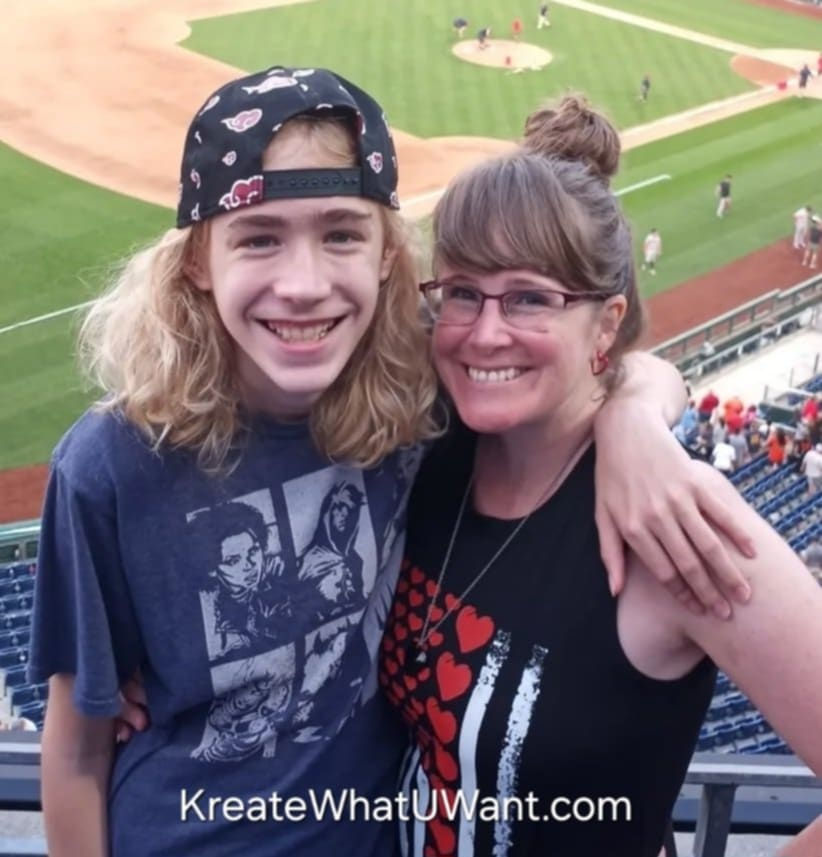Seen, Heard and Understood: Supporting Tweens & Teens as They Find their Voice
- Dianne Furphy, MS

- Jul 23, 2025
- 3 min read
A guide for parents and caregivers to hold space, offer presence, and nurture expression during the most formative years of growth.

🌱 Seen, Heard, and Understood: Supporting Tweens & Teens as They Find Their Voice
The tween and teen years are some of the most emotionally charged, identity-shaping, and creatively rich stages of life. But they’re also often misunderstood.
As kids move from childhood to adolescence, they crave more independence, deeper understanding, and a voice that’s truly theirs. Yet too often, they're met with correction instead of curiosity, or silence instead of space.
At Kreate What U Want, we work closely with tweens and teens—and what we see, time and time again, is this:
💬 They want to be heard without being fixed.
👀 They want to be seen without being judged.
🗣️ They want to speak from their truth and still feel safe.
Why Being Seen and Heard Matters
During the ages of 10–18, young people are exploring:
Who am I?
What do I care about?
Do I matter?
Is it safe to be myself in this world?
If the answer to these questions is silence, dismissal, or criticism, they may retreat—or act out. But when a parent or mentor offers presence, validation, and emotional safety, it opens up the most important gift: trust.
This is where confidence grows. This is where self-worth is nurtured. This is where mental health and emotional resilience begin.
Ways Parents Can Support Tweens & Teens Finding Their Voice
Here are a few heart-centered strategies for parents who want to hold space for their child’s growth:
1. Listen First, Fix Later (or Not at All)
When your teen shares something—no matter how big or small—resist the urge to jump into problem-solving mode. Try responding with:
“That makes sense.”
“I hear you.”
“That sounds like it was really hard. Tell me more.”
2. Validate Their Experience
Even if you disagree or don’t understand, validating their feelings helps them feel seen. You can say:
“That would’ve made me upset too.”
“I can tell this meant a lot to you.”
“You have every right to feel that way.”
3. Offer Creative Outlets for Expression
Sometimes words aren’t enough. Encourage self-expression through:
🎨 Art
📓 Journaling
🎭 Drama or movement
🎶 Music
These nonverbal tools give kids a powerful outlet for processing their emotions and discovering who they are.
4. Ask Curious Questions, Not Loaded Ones
Instead of “Why did you do that?” (which can sound accusatory), try:
“What were you feeling in that moment?”
“What do you wish had gone differently?”
“How can I support you through this?”
5. Let Them Have a Say
Invite them to be part of decisions that affect them. Ask for their opinion. Value their preferences. It builds self-esteem and gives them practice using their voice with confidence.
A Safe Space to Be Themselves
When tweens and teens feel accepted for who they are—not just for what they do—they begin to trust themselves. They speak more freely. They show up more honestly. They connect more deeply.
That’s the mission behind every class, workshop, and 1:1 session we offer at Kreate What U Want — to give young people a place where they feel heard, seen, and empowered to express who they truly are.
Because when you believe in yourself, you really can Kreate What U Want.
.jpg)



Comments